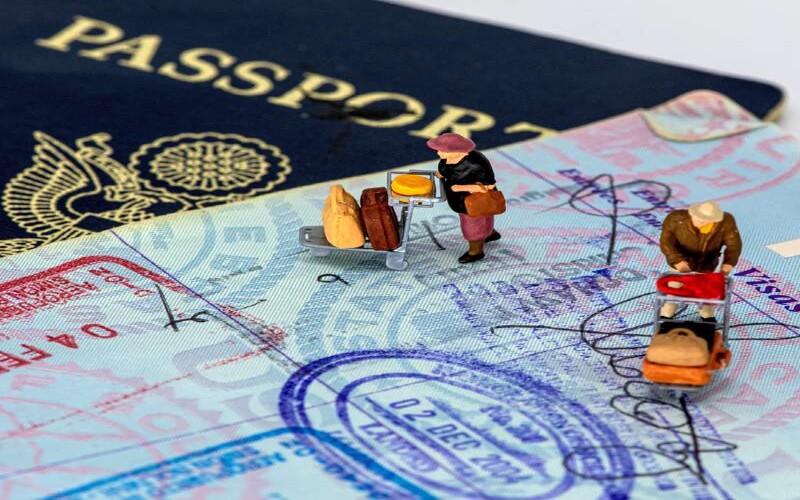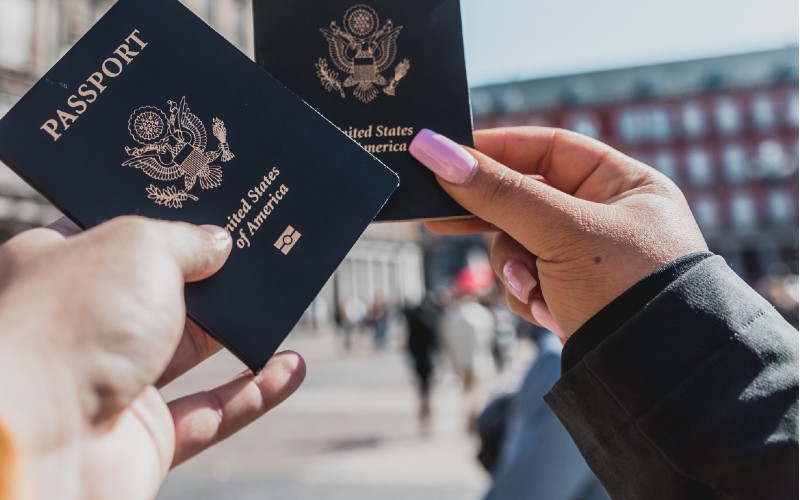Almost everyone has traveled on their list of things to do. People have a deep-seated need to travel, and millions of people set out on new adventures every year. Some people travel for leisure, while others do it for business or to see the world. Whatever the cause, there is no doubt that the world would be drastically different if people did not travel. Without a travel visa, one might be unable to accomplish their travel goals, even if they have saved up the cash and taken the time off. For entry into their borders, the majority of nations demand a travel visa. It may seem challenging to obtain a travel visa, and people frequently spend hours thinking about it. Yet a simple study can guarantee that you receive that travel visa sans any issues. Here is a brief explanation of a travel visa for those who are unfamiliar.
History of Travel Visa

Now let’s know a little about the history of travel visas. Although the idea of a travel visa has been around for centuries, the particulars of how these were issued & enforced have changed significantly over time and between various nations. In the 15th century, the Ottoman Empire issued one of the oldest records of travel permits. Foreign travelers to the Ottoman Empire had to get a “tezkere,” a travel passport that gave them permission to enter & roam around their land. The idea behind the current passport started to take shape in the 19th century. Travelers started being required to carry identification documents verifying their identity & nationality, which were frequently certified or stamped with visas granting them permission to enter or transit through particular countries.
The usage of travel visas expanded in the initial part of the 20th century, primarily as a way to control migration. In the 1920s, the League of Nations, the forerunner of the United Nations, created regulations for visa issue, and numerous nations started requiring visas for international visitors. The usage of travel visas grew over the decades that followed World War II. As diplomatic & political tensions increased during the Cold War, numerous nations imposed tight visa requirements and travel limitations. Visa applications have occasionally been used to obtain information about foreign visitors.
Travel visas are still frequently used today, with the majority of nations requiring some kind of visa/entry authorization for international travelers. Depending on the nation & the reason for the travel, there are many different requirements & procedures for acquiring a visa.
Types of Visas
There are various travel visa types that change depending on the itinerary & length of the trip, including tourist visa, business visa, student visa, work visa, transit visa, family visa, and medical visa.
- Tourist Visa- Those who intend to travel for leisure, sightseeing, or to see friends or family may apply for this sort of visa. A tourist visa typically permits a stay of up to maximum 90 days.
- Business Visa– For those travelling for work-related reasons, such as attending meetings, conferences, negotiations/signing contracts, a business visa is required. A business visa could be valid for longer than a tourist visa & permit more than one entry.
- Student Visa- This category is for those who want to study abroad. A student with a student visa could be able to work part-time while attending classes.
- Work Visa- People who have been offered a job abroad and intend to accept it are eligible for a work visa. Typically, work visas are granted for a particular position or profession.
- Transit Visa- This visa category is for visitors passing through a nation on their way to another. Generally, transit visas provide a brief stay of no more than 24 hours.
- Family Visa- Those who have any family members who reside abroad and wish to visit or join them may apply for a family visa. Depending on the kinship between the applicant & the family member, the conditions and duration of a family visa may change.
- Medical Visa- It is for travelers who require medical care abroad. A letter from a doctor/hospital in the applicant’s native country may be required in order to obtain a medical visa.
Visa-Free Travel
To travel, not everyone needs a visa. Due to reciprocal visa waiver agreements, several nations now grant visa-free entry to nationals of a small number of other nations for short stays. Most areas do not require a visa for travelers with passports from Western nations, like the U.S., Australia, Canada, & the EU States. The time frame for visa-free visits is brief; it can be anywhere from a handful of days to some months. Regardless of your country, you should research the prerequisites for obtaining a visa before leaving.
Ways to Get a Travel Visa
Now the question is how to get a travel visa. Well, here you go.

Different methods can be used by people who want to travel to a specific nation to apply for a travel visa. Most countries ensure they are represented abroad by having an embassy or consulate there. To attend the visa interview, one might go to the Embassy/Consulate of the country they desire to visit with a completed application form. It is crucial to have an appointment for the same.
Indian citizens, for instance, can fill out the application & submit it to the U.S. Embassy in India if they want to travel to the U.S. They will be required to take part in an interview, following which they may be denied or given a visa.
Some countries provide visitors from specific countries a visa on arrival in addition to the embassy or consulate. Its eligibility must first be verified. Once they arrive in the nation, they can submit an application if they qualify. To process the same, they will need to supply a few documents.
Visa-on Arrival
You may apply for a visa at the airport/another entrance point in the nation you are visiting. A visa on arrival is what this is known as. There will be few visa counters at the entry point in specific circumstances, where you should apply, pay the fee, and then wait for a decision before you may pass through. It could take anywhere from some minutes to some hours, depending on the nation.
Reasons for Visa Rejection
The government is not needed to provide a travel visa to every applicant. In some circumstances, the government may deny a visa application, and the applicant is not allowed to appeal the decision. The following are some common reasons for visa rejection.
- Incomplete form – People who do not fill out the application entirely risk having their visa request denied. You must complete and sign all required fields. Rejection could result from failure to comply.
- Fee obligations – Applicants may have their applications denied if they fail to pay the amount in full owed in fees. The charge must be paid in the currency specified by the government before the deadline.
- Criminal history – Those with a criminal history may have their visa application denied. The nation’s safety and security are the main justifications for this. For better chances of receiving a visa, applicants should have a spotless history.
- False paperwork – Occasionally, people will submit false documentation when applying for a visa. This is a frequent reason for visa denial. Applicants should make sure the data they submit is correct and current.
- Validity of passports – Applicants whose passports are scheduled to expire within a specific time frame risk having their application denied. Make sure the passport is valid and has plenty of blank pages.
- A Lack of Funds – People whose capacity to demonstrate their financial stability may be refused a visa. This is because people with insufficient resources may be enticed to engage in unlawful activity in order to make ends meet and because it does not permit a citizen to work in a country.
- Dual intentions – People who want to visit a country but have other plans may have their application denied. Authorities may occasionally rely on their own judgment to assess whether a requester has goals other than simple tourism.
Authorities may also reject the visa application on other cause, without providing any justification for the decision.
Bottom Line
Millions of people today have the opportunity to travel the globe and pursue their aspirations thanks to travel visas, which open up the world to them. Go get yours today.
Pankaj Rajpoot has extensive experience in the travel industry and has specialised in visa consulting. Along with being a keen writer, he has a wide range of interests and enjoys reading and travelling. He seeks inspiration by exploring new places, interacting with the local cultures, and nurturing his creative pursuits while doing so.